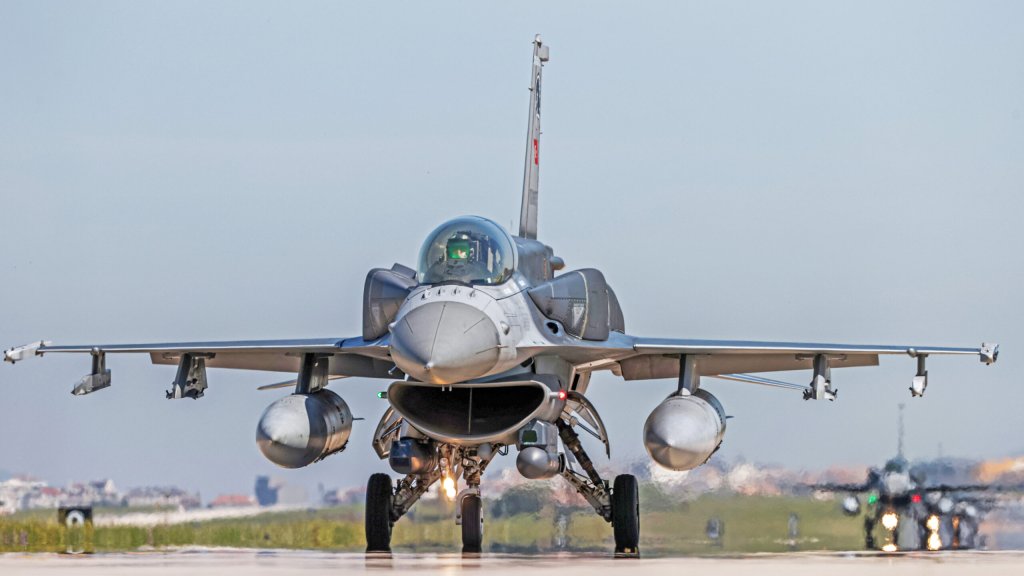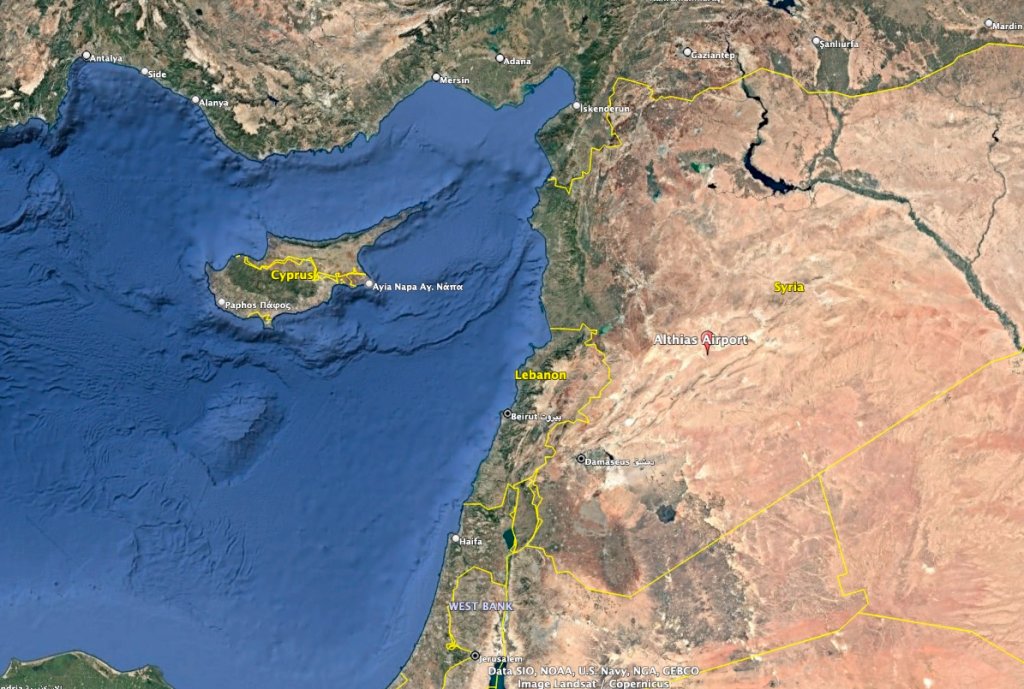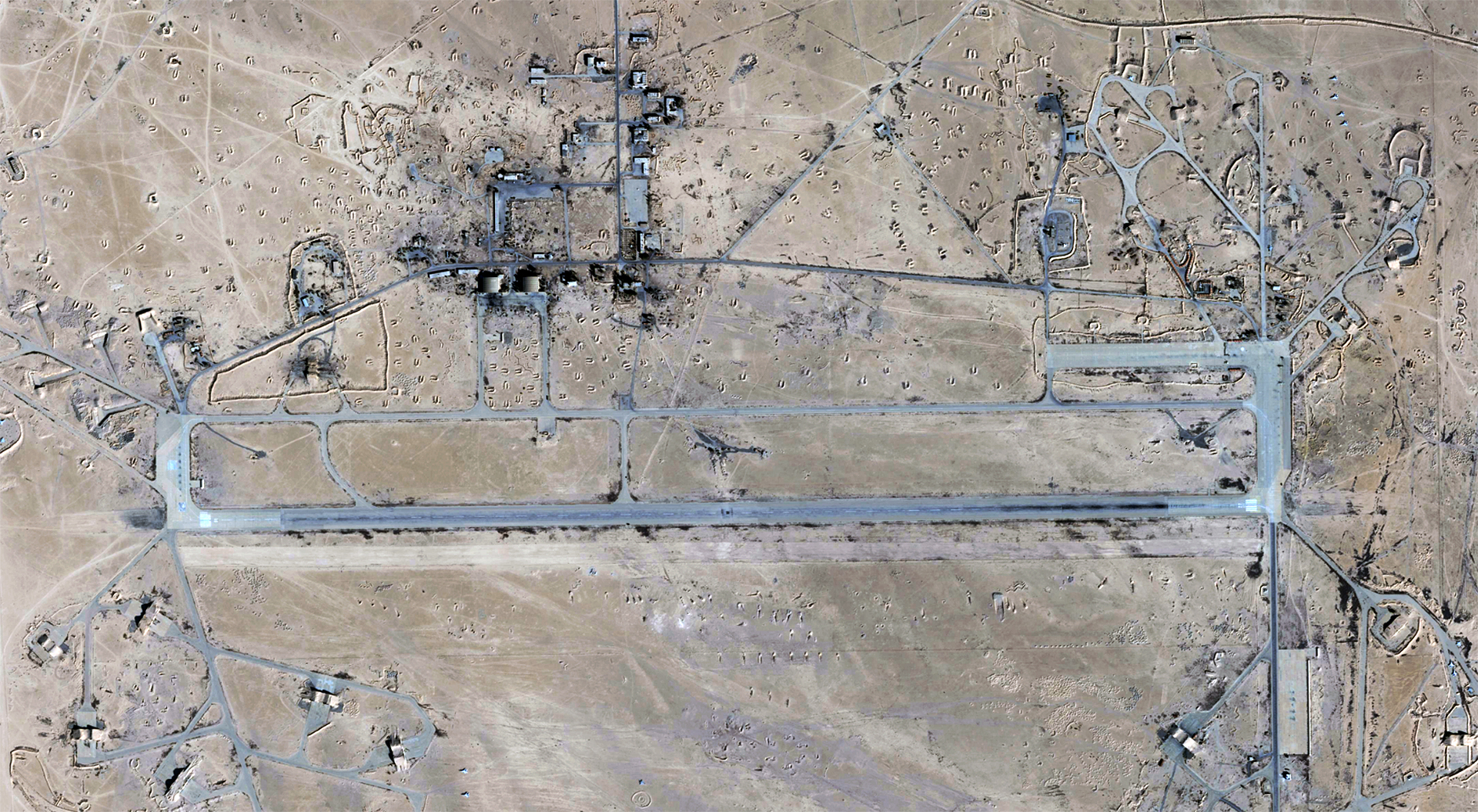Israeli military leaders are concerned about Turkey potentially building up a presence at air bases in Syria, a senior Israeli Defense Forces (IDF) official told The War Zone. His comments come as Ankara is negotiating a security agreement with the new government in Damascus, sparking concerns about a confrontation between Israel and Turkey.
“The establishment of a Turkish Air Force base in Palmyra, Syria [seen at the top of this article], could heighten regional tensions and increase the risk of conflict with Israel,” said the source, speaking on condition of anonymity to discuss military-related matters. “Given Israel’s ongoing efforts to prevent hostile military entrenchment in Syria, any significant Turkish military presence, especially in strategic locations like Palmyra, could be perceived as a threat to Israeli security interests.”

The official noted that while the chances of a direct fight between Israel and Turkey remain low at the moment, that could change in the already very volatile region. Earlier this week, Israel bombarded some of those bases, he pointed out.
“Recently, Israel has conducted airstrikes against military infrastructure in the region, including the T-4 airbase near Palmyra,” he said. “While there have been no direct confrontations between Israeli and Turkish forces so far, the situation remains sensitive and requires close monitoring.”
The strikes targeted “remaining strategic military capabilities” at the two sites, the IDF said, according to the Times of Israel.
“The airstrikes were carried out after the Israeli Air Intelligence Group — the Israeli Air Force’s intel unit — had been monitoring weapons and other strategic capabilities at the two military sites in central Syria over the recent period,” according to the publication. The resulting damage was “‘extensive,’ taking out capabilities that will preserve Israel’s aerial superiority in the region,” the publication noted.
Turkey is also beginning to build out a base in northern Syria, according to the Syrian North Press Agency.
“Turkish forces have begun constructing a military base inside Menagh Military Airbase in northern Aleppo countryside, northwestern Syria in recent days,” the publication wrote, citing a source. “Turkish forces started transporting massive concrete slabs and logistical materials using large transport vehicles into Menagh Military Airbase, approximately six kilometers south of Azaz, to establish an air defense center.”
Turkey wants to turn the airbase “into a fully operational air defense base, including the restoration of helicopter landing pads, as part of efforts to strengthen its military presence in northern Syria,” North Press Agency stated.
There are additional claims that Turkey is building a base in northwestern Syria near the town of Manbij.
Israel and Turkey have had an up-and-down relationship over the years. A brewing rapprochement in September 2023 fell apart weeks later over Israel’s war on Hamas. The growing friction between Israel and Turkey is taking place as both sides are seeking to carve out territory in Syria in the wake of the fall of long-time dictator Bashar Al Assad in December. The new government established by Hay’at Tahrir al-Sham (HTS), which led anti-Assad forces with a great deal of support from Turkey, has yet to gain full control over the country. In that vacuum, Jerusalem and Ankara have been seeking to expand their spheres of influence there.
Israel has been increasing the territory it controls in the south while Turkey is seeking to expand its military influence in the north, west, and now center of the country. Ankara already backs several militant groups in Syria that are fighting with the U.S.-backed Syrian Defense Forces and has carried out airstrikes against those groups.
Earlier this month, Turkish President Recep Tayyip Erdogan warned, without using Israel’s name, against intervention in Syria.
“Those seeking to benefit from Syria’s instability will not succeed,” said Erdogan. “We will not allow them to divide Syria as they imagine.”
Meanwhile, Israeli Prime Minister Benjamin Netanyahu held a cabinet meeting earlier this week over the increasing tensions with Turkey. The Israeli leader was trying to portray a confrontation with Ankara as inevitable.
In January, an Israeli government advisory committee warned that Israel must prepare for a direct confrontation with Turkey, The Jerusalem Post reported. The committee was established by the Israeli government to review defense budgets and policies.
The committee cautioned that “Turkey’s ambitions to restore its Ottoman-era influence could lead to heightened tensions with Israel, possibly escalating into conflict,” the publication explained.
Adding to the concerns is the fact that both Netanyahu and Erdogan are facing intense domestic pressures. Netanyahu is on trial for corruption while protests are roiling Turkey after Erdogan jailed the popular mayor of Istanbul, his main rival for the 2028 election.
“Erdogan might escalate tensions with Israel to rally domestic support,” the senior IDF official posited. Similar concerns have been expressed about Netanyahu. You can see protests against Erdogan in the following video.
Any form of direct conflict with Turkey would further strain Israel’s military.
In addition to expanding its salient in south Syria, Israel has resumed fighting Hamas in Gaza after a pause in the war that began Oct. 7, 2023. Today IDF struck the IAF Beirut for the first time since a ceasefire. The country is being attacked by Houthi missiles and was hit by hundreds of missiles and drones during attacks in October and April by Iran.
Turkey possesses a formidable arsenal even if it falls far short of Israel’s. It includes upgraded F-16C/D fighters as well as advanced drones, potent air defenses, modern tanks and long-range fires. Being able to operate from bases in Syria would place Turkish warplanes closer to Israel. If they bring air defenses as well, the combination could create far less permissible skies than the Israel Air Force now enjoys over Syria. Having these bases, with aircraft and air defenses, could allow Turkey to frustrate Israel’s plans to keep the new Syrian regime militarily defanged, as well.
In addition, a large Turkish presence at these bases would greatly increase their ability to control large swaths of Syria on the ground. Aside from places to deploy aviation assets, these air bases would also serve as garrisons for troops and proxies that can be supported independently of roads.
A Turkish military buildup in Syria could also complicate the aerial capabilities of the U.S., which carries out airstrikes against ISIS targets in Syria and provides a lot of support for the Kurdish-led Syrian Democratic Forces (SDF). The SDF operates in areas of Syria where HTS has little influence, and an increased force level could help Turkey back its allies in those areas.
However, in a direct conflict, Turkey would be overmatched in many respects. Israel has a superior Air Force and air defense systems and a battle-hardened, very high-tech army. Israel also enjoys the steadfast support of the U.S., which provides billions of dollars in weapons and munitions as well as intelligence to the Jewish state.

Even an indirect conflict with Turkey could add to Israel’s problems.
“Similar to the period when there was significant Russian deployment in Syria, the Turks, like the Russians then, could take a variety of retaliatory measures beyond dispatching their aircraft against Israeli planes,” the Israel-based Alma Research and Education Center recently noted. “These actions could include providing the Syrians with advance intelligence on Israeli intentions, publicizing details of Israeli activities, and transferring advanced conventional weaponry to the Syrians (emphasizing air defense systems, missiles, UAVs, and more).”
Despite the increasingly heated rhetoric, several factors could reduce the likelihood of conflict, the IDF official told us.
The tensions between Israel and Turkey pit a key U.S. ally against a NATO member. Should Israel and Turkey come to blows, it would put the U.S. in a terrible position of having to navigate between the two. Right now, President Donald Trump has said he backs Israel unequivocally, which isn’t a good sign for Turkey should a still unlikely skirmish break out into a wider conflict. A direct conflict could strain Turkey’s other Western alliances, the official said.
Still, all things considered, the IDF official is concerned about the future. As mentioned earlier, Erdogan’s stability is one driving factor.
“Personally, I believe we are closer to a conflict, given the emergence of a radical jihadist regime in Syria and the high likelihood that Erdogan, facing concerns over his regime’s stability, might choose escalation despite conflicting interests,” the official suggested. “It could become a ‘do or die’ scenario for him.”
“In short, there is no longer any certainty in the Middle East or perhaps anywhere in the world regarding regional stability,” he added. “We must constantly monitor the situation and define, based on security interests, the warning signs that could lead to such an escalation. This is essential to avoid being caught off guard.”
Contact the author: howard@thewarzone.com
